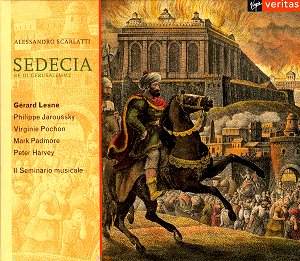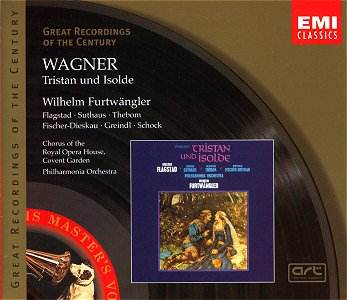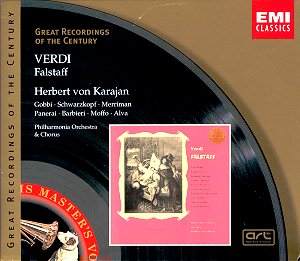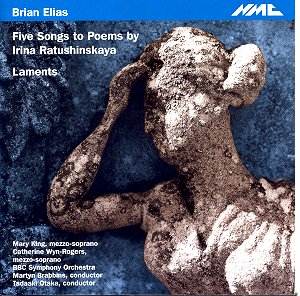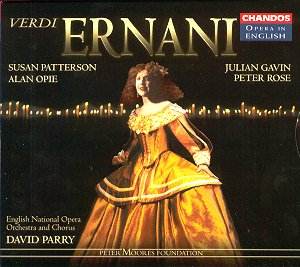 CD Review: Giuseppe Verdi (1813 – 1901) – Ernani
CD Review: Giuseppe Verdi (1813 – 1901) – Ernani
Performers:
English National Opera Orchestra and Chorus / David Parry
Recorded: Blackheath Halls, 12-16 July 2000
Label: Chandos Opera in English CHAN3052 (2)
CD1 [66.50] | CD2 [65.11]
In the realm of early Verdi operas, Ernani stands as a pivotal work, bridging the composer’s youthful exuberance with the nuanced character development that would later define his operatic masterpieces. This recording under David Parry’s baton captures both the fervor and the fraught emotional landscapes that characterize the work, while also presenting a cast that, for the most part, rises to the demands of Verdi’s challenging score.
Written for the intimate setting of La Fenice in Venice, Ernani showcases Verdi’s early inclination toward the dramatic potential of individual characters, a departure from the choral-centric approach of his earlier works. The opera’s narrative, rife with themes of honor, revenge, and tragic love, unfolds through a series of richly woven arias and ensemble pieces. In this recording, Parry’s interpretation emphasizes the dynamic interplay between orchestral color and vocal line, ensuring that every musical nuance is deftly articulated.
Julian Gavin’s portrayal of Ernani is particularly noteworthy. His tenor possesses a clarity and richness that are vital for capturing the character’s volatile passion. The high notes, which can often prove daunting in this role, emerge with a sense of ease, particularly in the aria “Ernani, involami,” where Gavin’s phrasing elicits both yearning and defiance. His diction is commendable, allowing for the emotional weight of the text to resonate with the listener.
Contrastingly, Peter Rose’s Don Ruy Gomez de Silva embodies a commanding gravitas that is essential to the role of the Spanish Grandee. While Rose’s interpretation offers a solid foundation, one might argue that his portrayal could benefit from a touch more vehemence, particularly in moments of emotional confrontation with Ernani. The character’s vitriolic nature, hinted at in the libretto, could be more vividly conveyed; nonetheless, his vocal authority is undeniable, particularly in the duet with Alan Opie’s Don Carlo, which showcases an admirable blend of timbres.
Opie’s Don Carlo emerges as a figure of noble stature, his baritone imbued with warmth and resonance. The interplay between his character and that of Rose’s de Silva is a highlight of this recording, particularly in the act where the tension of honor and obligation comes to a head. The dramatic urgency is palpable, yet it maintains a lyrical beauty that is characteristic of Verdi’s writing.
Susan Patterson’s Elvira, while largely commendable for her breath control and overall musicality, does occasionally lapse into moments of shrillness that detract from her otherwise graceful interpretation. The role presents significant challenges, not only vocally but also in terms of character complexity; Patterson navigates these difficulties with varying degrees of success. Nonetheless, her ability to imbue the character with a sense of urgency and desperation during “Tutto sprezzo che d’ogni pianto” is admirable.
The orchestral performance under Parry’s direction deserves special mention. The orchestration of Ernani reveals Verdi’s early mastery in creating vivid soundscapes, from the haunting opening of Part III at Charlemagne’s tomb to the lively celebrations of Part IV. Parry’s disciplined pacing and attention to phrasing allow the orchestra to shine, with a particularly effective use of dynamics that heightens the emotional impact of key moments.
The recording quality is pristine, with a clarity that allows each voice and instrumental line to be distinctly heard. The engineering captures the warmth of the performance space, lending an immediacy that further enhances the listener’s experience.
In terms of historical context, Ernani marks a significant step in Verdi’s evolution as a composer, showcasing his burgeoning ability to blend dramatic narrative with complex musical structures. The opera’s premiere in 1844 was not only a triumph but also a harbinger of Verdi’s future successes, establishing him as a leading figure in the operatic canon.
While this recording is not without its imperfections—occasional interpretative choices may leave the listener yearning for a more profound emotional connection—it remains a valuable addition to the body of recordings dedicated to this early Verdi work. It offers insight into both the composer’s early style and the evolving tradition of opera in English, making it a commendable choice for those looking to explore the depths of Ernani.
In conclusion, David Parry’s Ernani is a well-executed recording that balances the demands of the score with an engaging performance from a capable cast. Though it may not surpass the most revered renditions of the work, it certainly stands as a worthy interpretation that invites listeners to immerse themselves in Verdi’s early operatic world.
